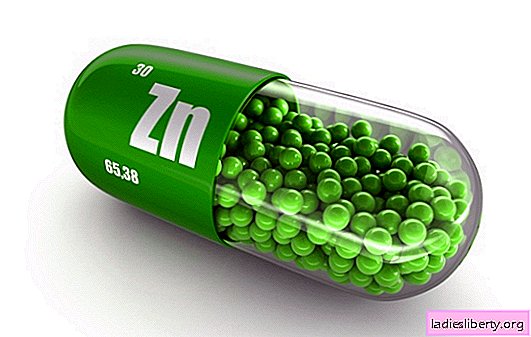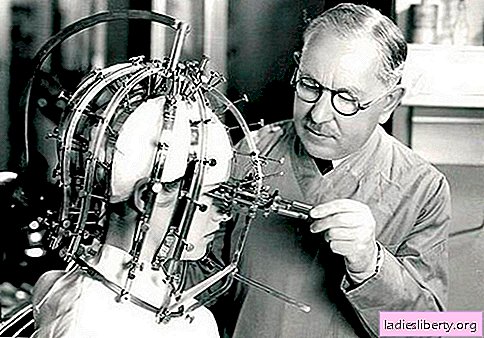
Zinc is a trace element absolutely necessary for human health. If it is enough in the body, then diseases are bypassed, the immune system works perfectly. If zinc is not enough, a person constantly catches a cold, suffers from allergies, has poor skin and dull hair.
Where is contained
The intake of trace elements with food is a safe and easy way to saturate the body with the necessary substances. The list of products that can become a source of zinc is quite wide:
• chicken eggs;
• milk;
• beef and beef liver;
• bird;
• garlic, onions and green vegetables;
• cheese;
• oysters;
• buckwheat, lentils and soy;
• barley flour;
• dates, figs;
• strawberries and other berries;
• potatoes.
But especially a lot of zinc in brewer's yeast (dry and live), sprouted wheat. There is zinc in green tea, citruses and wheat bran. Including these products in your diet, you can have a beneficial effect on your body, because the benefits of zinc are great.
Zinc is best absorbed from meat, worst of all - from beans and cereals. Maybe that is why the “wrong” vegetarians (that is, those who do not know how to adequately replace animal foods with plant foods) lack not only zinc, but also other essential trace elements. It is important that alcohol and caffeine do not allow zinc to be absorbed. Therefore, lovers of alcohol and coffee lovers may have problems with immunity.
The beneficial properties of zinc
Zinc is not equally distributed in human organs. Most of it is in the skin, retina, kidneys and liver, which is why products containing zinc are recommended in the presence of any diseases associated with these organs.
In addition, in the male body, zinc is found in the prostate gland, and therefore it is extremely important for men's health. Due to zinc, the synthesis of the most important hormone - testosterone - takes place. The normal zinc content in men is the prevention of cancer or inflammation of the prostate.
The beneficial properties of zinc are as follows:
• stimulates immune responses aimed at the fight against tumor cells, viruses and bacteria;
• increases the metabolic rate, cell replacement, protein synthesis;
• regulates blood circulation;
• helps to properly absorb fats and carbohydrates;
• promotes rapid skin regeneration;
• supports transparency of the lens of the eye and retinal health;
• strengthens memory;
• restores a sense of smell and taste sensitivity;
• necessary for the normal development of the genitals in children and their proper functioning in adults.
To maintain normal functions, the body should receive 15-20 mg of zinc every day. The use of the trace element in this case will be optimal. It is possible to reduce the dosage to 5 mg, but a lower limit will mean a gradual accumulation of deficiency. With prolonged exceeding the recommended dose, the harm from zinc will be serious.
Thanks to zinc, vitamins A and E can work in the human body, and blood vessels are supplied with blood. The most important role of this microelement is that it is involved in the synthesis of insulin and growth hormone - somatotropic hormone. Due to a lack of zinc, puberty may develop.
In addition, symptoms of zinc deficiency include increased fatigue, irritability, impaired vision and memory, the development of anemia, weight loss, and the appearance of white spots on the nails. It is very important to monitor the sufficient intake of this microelement in the body for those who study or engage in intellectual work.
When are zinc preparations prescribed?
If zinc deficiency is diagnosed or a disease associated with a deficiency of this substance, a zinc preparation in a dosage form can be prescribed. In some diseases, a low trace element in the blood is detected. This symptom refers to diseases such as diabetes, cancer, atherosclerosis, heart failure, cirrhosis, arthritis, rheumatism, gastric and duodenal ulcer, thyroid dysfunction.
The intake of hormonal birth control pills and calcium in the form of pharmacy drugs, as well as some drugs, can reduce the zinc content in the body. Therefore, when choosing a treatment regimen, you need to carefully consider the acceptable combination of tablets.
Indications for the appointment of tablets with zinc are the following ailments:
• growth retardation and puberty;
• atopic dermatitis, skin diseases, including ulcers;
• various types of allergies;
• acne, acne and other skin inflammations;
• inflammation of the digestive organs, gastrointestinal pathologies;
• liver disease;
• immunodeficiency states;
• mental retardation;
• violation of reproductive function, infertility;
• violation of taste and touch.
Since a clear relationship has been found between the optimal content of zinc in the body and the ability of the immune system to resist viral, bacterial infections, zinc preparations can be prescribed during the period of influenza and colds as a prophylactic. However, it is impossible to abuse them, exceeding the dose or consuming for too long.
Zinc is an excellent treatment for various skin diseases. The pharmacologists have long learned to use the beneficial properties of zinc in the manufacture of creams and ointments. They are effective against acne, allergic skin damage and even rejuvenation. External means with zinc eliminate inflammation, fight wrinkles and acne.
Zinc damage
Zinc, like any other trace element important for health, has no contraindications. But this does not mean that it can be used uncontrollably in the hope of improving health. It is important that the symptomatology of diseases can only be evaluated by a doctor, since you can easily confuse the symptoms or not take into account any nuances. Say, zinc deficiency can lead to hair loss or brittle bones, but at the same time, the same symptoms are characteristic for a deficiency of B vitamins.
Zinc damage can be serious if the daily dose exceeds 150 mg. If about 600 mg was ingested, then the symptoms of poisoning are sharply manifested:
• nausea;
• weakness;
• fainting state;
• vomiting;
• intestinal cramps and bleeding.
A constant overdose leads to anemia, frequent respiratory infections, hepatitis, liver and kidney failure. To get an overdose, it is not necessary to eat a package of the drug in tablet form. It is enough to get drunk with water, which has long stood in the tank of their galvanized steel. That is why zinc containers cannot be used to store food and water.
Zinc is most dangerous if it is combined with other chemicals. By itself, this trace element is neutral for the human body and is not capable of harming it. Unless, of course, we are talking about a rare form of individual intolerance.
Zinc intake is contraindicated simultaneously with tetracycline, pancreatic enzymes, vitamin A, diuretics and some other drugs. In any case, only a doctor should prescribe a course of zinc preparations.











